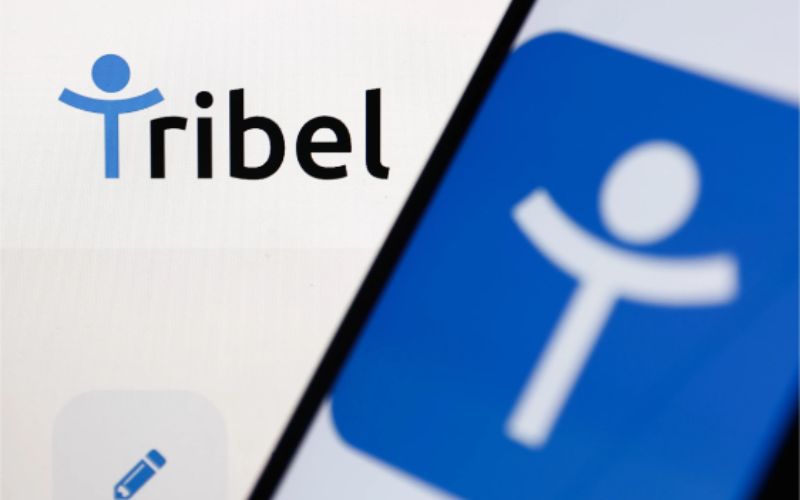The social media landscape has been dominated by a handful of giants for the better part of a decade. These platforms have built extensive networks and complex ecosystems that have tethered users to their services through a blend of convenience and lack of alternatives. However, the cracks in the foundation of this social media monopoly are beginning to show. As users become more conscious of their privacy and the value of their data, a new player, Tribel, is poised to challenge the status quo and lead the charge towards a more user-centric social media experience.
Breaking the Social Media Monopoly
The concept of a social media monopoly isn’t about a single company controlling the market. Instead, it’s about a few powerful entities setting the rules and reaping the rewards of our digital interactions. These platforms have become so ingrained in our daily lives that they have formed a virtual oligopoly, controlling how we connect, share, and consume information.
This control has led to several critical issues:
- Privacy Concerns: Users are increasingly worried about how their data is collected, used, and shared.
- Content Moderation: There is ongoing debate about the platforms’ roles as moderators of truth, with criticisms of both over-censorship and the spread of misinformation.
- Algorithmic Bias: The algorithms designed to tailor content to users have been accused of creating echo chambers and reinforcing biases.
As these issues are compounded, the need for an alternative becomes more apparent. Enter Tribel, a platform designed to address these pain points and offer a fresh approach to social networking.
Tribel’s Vision: A User-Centric Approach
Tribel is not just another social media platform; it represents a fundamental shift in how social media operates. Here’s how Tribel is redefining the landscape:
Privacy and Data Control
One of the significant issues with the current social media monopoly is the handling of user data. Tribel is built on the principle that users should have control over their data. The platform offers robust privacy settings and transparent data policies, ensuring users know exactly how their information is used.
Community and Connection
Unlike platforms that emphasize follower counts and likes, Tribel focuses on building genuine communities. Users are encouraged to engage with like-minded individuals and foster deeper connections. This community-centric approach not only enhances the user experience but also helps create a more positive and supportive online environment.
Quality Over Quantity
In the race to dominate social media, many platforms have prioritized quantity over quality. Tribel flips the script by emphasizing high-quality content and meaningful interactions. This shift ensures that users receive more value from their time spent online, rather than being bombarded with irrelevant or low-quality posts.
The Potential Impact of Tribel
As Tribel gains traction, its impact on the social media monopoly could be significant. Here’s what we can expect:
A More Competitive Landscape
Tribel’s emergence as a strong competitor could force existing platforms to rethink their strategies. This competition could lead to more innovation and better services for users. By challenging the giants, Tribel is pushing the industry towards a more competitive and diverse landscape.
Empowered Users
By prioritizing user control and community engagement, Tribel empowers its users. This empowerment could lead to a shift in how social media platforms interact with their users, with a greater emphasis on transparency and user rights.
Redefining Success Metrics
Tribel’s focus on community and quality could redefine the success metrics for social media platforms. Instead of chasing follower counts and likes, platforms may start to prioritize user satisfaction and meaningful engagement.
Challenges Ahead
While Tribel’s approach is promising, it faces several challenges in its quest to disrupt the social media monopoly. These include:
User Adoption
Convincing users to switch from established platforms to a new one is no easy task. Tribel will need to offer a compelling value proposition and seamless user experience to attract and retain users.
Competition
The social media monopoly is not static. Existing platforms are continuously evolving and may incorporate features similar to Tribel’s to retain their user base. Tribel will need to stay ahead of the curve to remain competitive.
Conclusion
The end of the social media monopoly is on the horizon, and Tribel is at the forefront of this revolution. By prioritizing user privacy, fostering genuine connections, and promoting high-quality content, Tribel is setting a new standard for what social media can and should be.
As users become more aware of their digital rights and the value of their data, platforms like Tribel offer a welcome alternative. The shift towards a more user-centric social media landscape is not just beneficial for users but also for the industry, driving innovation and improvement.
The journey to break the social media monopoly will be challenging, but with Tribel leading the charge, a brighter, more equitable digital future is within reach.





